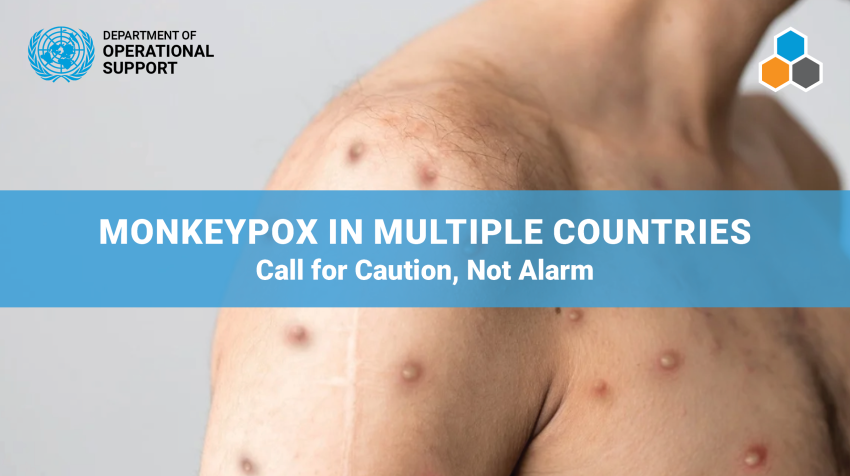In May 2022, monkeypox cases were first reported from non-endemic countries.
As of 22 June 2022, 3,413 lab-confirmed cases and one death from 50 countries have been reported.
Some cases were reported among men who have sex with men. Other cases were reported in people living in the same household as an infected person.
What is monkeypox?
Monkeypox is a rare self-limiting disease that typically occurs throughout Central and West Africa.
It is thought that African rodents and non-human primates may be the source of infection, and the case-fatality ratio has been around 3% to 6% recently.
How is monkeypox typically spread?
People usually become infected through contact with the skin lesions or bodily fluids of infected animals or humans, including respiratory droplets, or through contact with materials contaminated with the virus.
What are the typical symptoms, infectious period, and treatment?
- Monkeypox is usually a self-limited disease with symptoms lasting from 2 to 4 weeks.
- Symptoms include fever, headache, muscle aches, and swollen lymph nodes, followed by a rash.
- The lesions usually develop at the same time and evolve together on any given part of the body. Lesions typically progress through several stages before falling off.
- People with monkeypox are contagious until all lesions have scabbed over and fallen off the skin.
- There are no proven effective treatments specific for monkeypox; only supportive care and relief of symptoms.
NOTE: Many cases in the current global outbreak do not present the “classical picture” for monkeypox. Common presenting symptoms in this current outbreak include genital and peri-anal lesions, fever, swollen lymph nodes, and pain when swallowing.
How can monkeypox be prevented?
- Avoid close contact with sick people, including those with skin lesions or genital lesions.
- Avoid contact with dead or live wild animals such as small mammals including rodents (rats, squirrels) and non-human primates (monkeys, apes).
- Avoid eating or preparing wild game (bushmeat) or using products derived from wild animals from Africa (creams, lotions, powders).
- Avoid contact with materials used by sick people (such as clothing, bedding, or materials used in healthcare settings) or that came into contact with infected animals.
- Prior vaccination against smallpox may provide protection against monkeypox.
- A newer vaccine based on a modified attenuated Vaccinia virus was approved in 2019 for the prevention of monkeypox. Availability remains limited.
Is there a risk to me?
The risk is low but you should seek medical care immediately if you develop a new, unexplained rash on any part of the body, with or without fever and chills, and avoid contact with others.
If possible, call ahead before going to the healthcare facility.
To learn more, visit the WHO’s Q&A on monkeypox and check out the latest WHO monkeypox multi-country situation updates.



